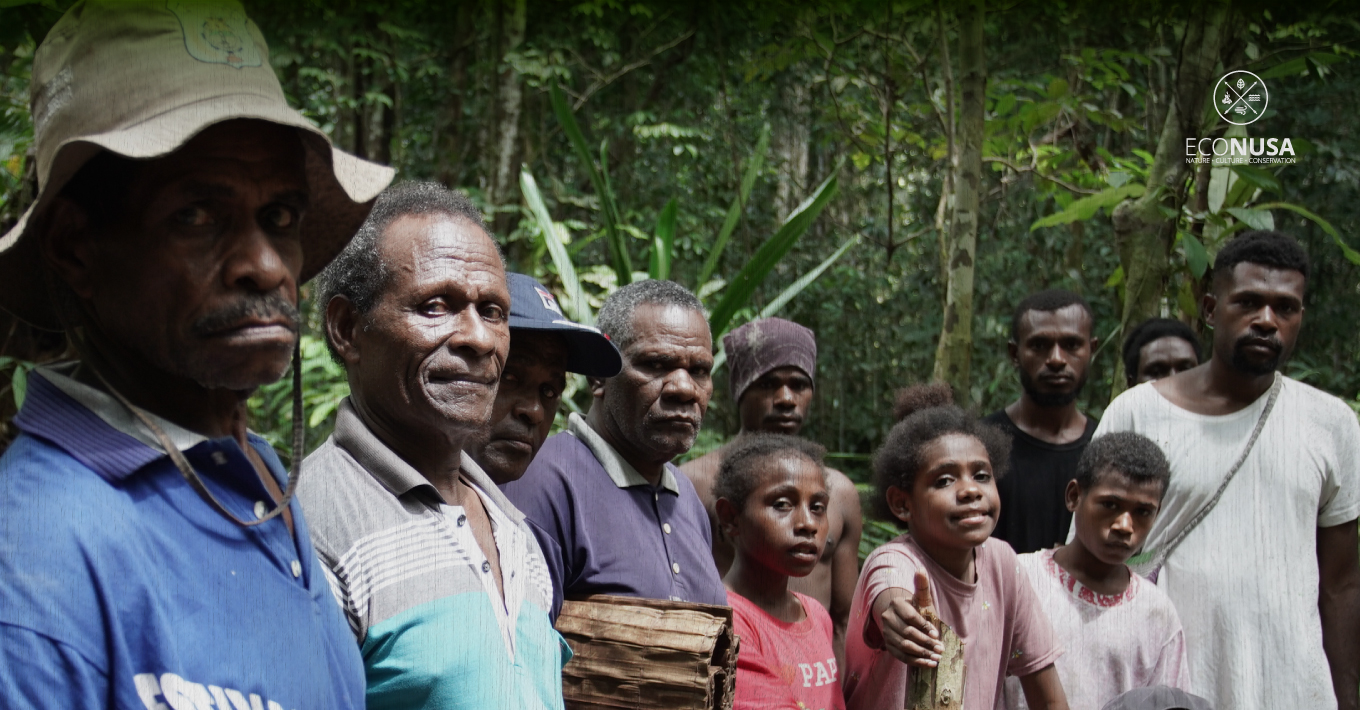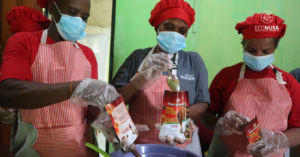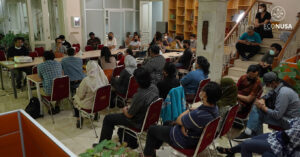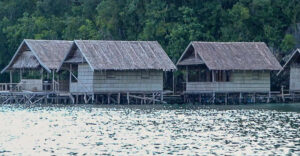
As Indonesia commemorates its 76th independence anniversary on the 17th of August and celebrates national Nature Conservation Day on the 10th, the rest of the world also commemorates the International Day of the World’s Indigenous Peoples on the 9th.
The United Nations (UN) held a discussion in commemoration of the International Day of the World’s Indigenous Peoples this year under the “Leaning no one behind: indigenous peoples and call for new social contract” theme. On its official website, the UN mentions that more than 70 percent of the world’s population lives in the country with income and wealth gap, including the indigenous peoples that have faced high poverty rate and acute social-economic loss.
Disparity commonly happens due to institutional instability, corruption, financial crisis, crime escalation, and less access to justice, education and health service. Acute poverty and injustice tend to spark tense and severe social conflict to indigenous peoples. “Eradicating poverty in any form and dimension, and discrepancy reduction is the core of the 2030 Sustainable Development Agenda,” the UN reports.
Read Also: Handing West Papua Forests Back to Titleholders
All communities, not only government but also social activists, indigenous peoples, women, academicians, scientists, play their roles to develop and re-design a new social contract that serves “We, the people” as stipulated in the UN Charter Preamble. Indigenous people’s rights to take part in the decision making are deemed key components to reconcile the state and the indigenous peoples.
How about Indigenous People’s Conditions in Indonesia?
Human Rights National Commission’s Commissioner for Studies and Research, Sandrayati Moniaga, said that indigenous people have the equal rights as other communities. But, indigenous peoples have their own distinction. For instance, if a common community has property rights, the indigenous people also have equal rights with different concepts. They should have had equal treatment before law. Their rights are subject to recognition, respect and protection provided by the state.
However, the Human Rights National Commission recorded that most indigenous peoples in Indonesia have not deserved their property rights. The government constitutes the fulfilment of administrative prerequisites such as regional regulation or other regional legal products. This condition prevents the indigenous peoples from getting back their property rights. “The vast expanse of forest areas and overlapping of customary land and state land have so far made only about 30,000 hectares returned and recognized as the customary forests. Just imagine that it is just a small part of the targeted 450,000 hectares,” said Sandra.
Read Also: Regulation Holding Up Tradition Knowledge
Human Rights National Commission researcher, Agus Suntoro, agreed with Sandra’s argument. As to him, the administrative requirement here has become an obstacle to the state to meet its obligation. The indigenous people’s hardship is due allegedly to political and economical reasons. Scores of customary areas have been shifted to different owners. For instance, it is transferred to the Cultivation Rights (HGU) or Forest Concession Rights (HPH) holders.
Indigenous People’s Draft Bill not Deliberated yet
The draft bill on Indigenous Peoples regulating the recognition, protection and fulfilment of indigenous rights have been listed twice in the 2014 and 2019 National Legislation Programs (Prolegnas). However, the draft bill has so far not been ratified yet. Instead of deliberating the Indigenous Rights draft bill, the House of Representatives passed the Job Creation draft bill on October 5, 2020, submitted by the government on February 12, 2020.
According to EcoNusa’s Policy and Advocacy Manager, Cindy Junicke Simangunsong, the Job Creation Law remains open to violation that leads to deforestation particularly in Tanah Papua. Besides, it puts the indigenous people at risk due partly to the fact that the law simplifies or loosens business permit proposals which fail to side with the indigenous peoples.
In the Job Creation Law, the Assessment Commission of Environmental Impact Analysis (AMDAL) is the Feasibility Study Team which consists only of the central government, regional government and certified experts. Meanwhile, the public has limited engagement to AMDAL document arrangement process. In fact, public, particularly the indigenous peoples, is one of the key elements that is involved in every decision making process in connection with forest and environment conservation and utilization. “It is them who will get the direct impact of the transformation. They have so far acted as our forest ‘defenders’ in daily life through their various local wisdoms. Let alone, forests are their sources of livelihood to the existing indigenous peoples,” she said.
Indigenous People’s Way to Defend Forests
For indigenous peoples, forests have a very significant meaning. It becomes their source of livelihood and serves as their identities. It is no wonder that the indigenous peoples make every effort to defend their forests. They, among others, perform sasi traditions of which they traditionally ban people from taking certain natural resources from the customary land. The regulation is performed by the indigenous peoples in Tanah Papua and Maluku.
Research conducted by the Indigenous Peoples Alliance of the Archipelago (AMAN) in 2018 recorded the economic value of natural resources management in six customary areas could generate Rp159.21 billion annually. Ecosystem service value is worth Rp 170.77 billion annually and could boost the local economy. However, with the absence of special law, the indigenous peoples lack protection. The coalition for the Indigenous Peoples draft bill said that the indigenous people’s rights for the environment is the 1 out of 6 community rights which is violated. Since last year, the 30 CSOs coalition here, including EcoNusa, and civil society have urged the government to pass the Indigenous People draft bill.
Read Also: Environment and Indigenous Peoples in the Job Creation Law
The momentum of three major commemoration in August should have served as remembrance of the existence of the indigenous peoples. The 76th commemoration of Independence Day of the Republic of Indonesia should have bestowed independence to the indigenous peoples that have not gained their independence. They are parts of nations whose rights deserve recognition. When granted, the recognition would bolster this year’s celebration theme, “Indonesia Tangguh, Indonesia Tumbuh (Resilient Indonesia, Emergent Indonesia)”.
Edited by: Leo Wahyudi & Nefa Firman







